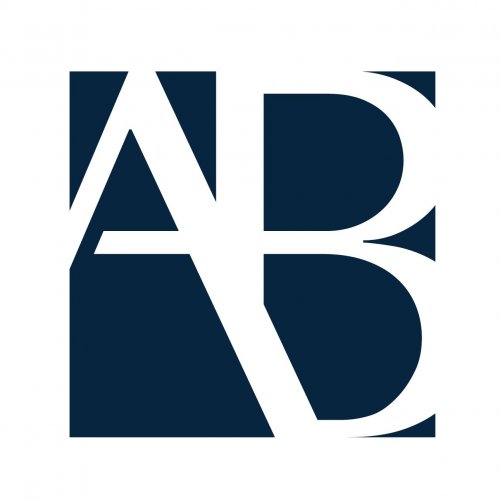ทนายความ การอนุบาล ที่ดีที่สุดใน เชียงใหม่
แบ่งปันความต้องการของคุณกับเรา รับการติดต่อจากสำนักงานกฎหมาย
ฟรี ใช้เวลา 2 นาที
รายชื่อทนายความที่ดีที่สุดใน เชียงใหม่, ประเทศไทย
1. เกี่ยวกับกฎหมายการอนุบาลในเชียงใหม่, ประเทศไทย
การอนุบาลเป็นกรอบกฎหมายที่กำหนดหน้าที่และสิทธิของผู้ปกครองต่อบุตรที่ยังไม่บรรลุนิติภาวะ ในเชียงใหม่ กรณีข้อพิพาทมักไปถึง ศาลเยาวชนและครอบครัวจังหวัดเชียงใหม่ เพื่อพิจารณาการเลี้ยงดูและอุปการะบุตร
ในภาพรวม กรอบกฎหมายคุ้มครองเด็กมีวัตถุประสงค์เพื่อประโยชน์สูงสุดของเด็ก และมักให้โอกาสพิจารณาความเห็นของผู้ปกครองร่วม กับคุณแม่หรือคุณพ่อในสถานการณ์ต่างๆ เช่น การหย่าร้างหรือการทดแทนการดูแล
ข้อกำหนดสำคัญที่เกี่ยวข้องได้แก่ พระราชบัญญัติคุ้มครองเด็กและเยาวชน พ.ศ. 2546 ซึ่งครอบคลุมการอุปการะ เลี้ยงดู และการคุ้มครองเด็ก การใช้งานร่วมกับกฎหมายแพ่ง-พาณิชย์เป็นประเด็นหลักในการตัดสินคดีอนุบาล
2. ทำไมคุณอาจต้องการทนายความ
กรณีหย่าร้างที่เชียงใหม่ซึ่งมีเด็กเป็นประเด็นหลักมักต้องการทนายเพื่อวางแผนคำขออนุบาลที่ให้เด็กได้รับประโยชน์สูงสุด
กรณีพ่อแม่มีความเห็นไม่ตรงกัน ทนายช่วยเตรียมเอกสารและหลักฐานเพื่อโชว์ความมั่นคงและความพร้อมในการดูแลเด็ก
กรณีเด็กอยู่กับผู้ปกครองหนึ่งคนแต่มีความเสี่ยงด้านสุขภาพจิตหรือความมั่นคง ทนายจะช่วยประสานกับศาลและหน่วยงานที่เกี่ยวข้อง
กรณีที่มีการย้ายถิ่นฐานหรือเปลี่ยนประเทศ ทนายความช่วยวิเคราะห์ผลกระทบต่อการอนุบาลและการเข้าถึงทรัพยากรของเด็ก
กรณีต้องการแนวทางการรักษาความลับข้อมูลเด็กและประเด็นข้อตกลงร่วม ทนายความช่วยร่างสัญญาหรือข้อตกลงร่วมกันอย่างถูกต้อง
กรณีผู้ปกครองผู้พิการหรือมีข้อจำกัดด้านสุขภาพ ทนายสามารถเสนอทางเลือกการดูแลเด็กที่เหมาะสมและเป็นธรรมต่อเด็ก
3. ภาพรวมกฎหมายท้องถิ่น
พระราชบัญญัติคุ้มครองเด็กและเยาวชน พ.ศ. 2546 เป็นกรอบหลักที่กำหนดสิทธิเด็กในทุกกรณีการดูแล เด็กมีสิทธิได้รับการดูแลที่ปลอดภัยและเหมาะสม
ประมวลกฎหมายแพ่งและพาณิชย์ มีบทบัญญัติที่เกี่ยวข้องกับการอุปการะและการเลี้ยงดูบุตร ซึ่งมักถูกนำมาอ้างอ้างในการตัดสินคดีอนุบาลในเชียงใหม่
แนวทางปฏิบัติของ ศาลเยาวชนและครอบครัวจังหวัดเชียงใหม่ เป็นแหล่งระบุขั้นตอนการยื่นคำร้อง การพิจารณา และการติดตามคดีเด็กในพื้นที่นี้
4. คำถามที่พบบ่อย
อะไรคือการอนุบาลบุตรและบทบาทของผู้ปกครอง?
การอนุบาลคือการให้ผู้ปกครองมีอำนาจดูแลบุตรตามกฎหมาย เด็กมีสิทธิได้รับความปลอดภัยและการดูแลที่เหมาะสม ผู้ปกครองต้องให้การศึกษา สุขภาพ และการพัฒนาของเด็กเป็นหลัก
อย่างไรจะเริ่มกระบวนการยื่นคำขออนุบาลบุตรที่เชียงใหม่?
เริ่มจากปรึกษาทนายด้านอนุบาล เพื่อประเมินสถานการณ์ รวบรวมเอกสาร แล้วยื่นคำร้องต่อ ศาลเยาวชนและครอบครัวจังหวัดเชียงใหม่ เมื่อพร้อม เจ้าหน้าที่ศาลจะกำหนดวันพิจารณา
เมื่อไหร่ควรปรึกษาทนายความด้านการอนุบาล?
ควรปรึกษาทันทีเมื่อมีข้อขัดแย้งเรื่องการเลี้ยงดู หรือเมื่อเกิดเหตุที่อาจกระทบเด็ก เช่น การหย่าร้างที่มีบุตร
ที่ไหนยื่นคำร้องและกระบวนการอะไร?
คำร้องยื่นที่ ศาลเยาวชนและครอบครัวจังหวัดเชียงใหม่ กระบวนการประกอบด้วยการตรวจเอกสาร การพิจารณา และอาจมีการพิจารณาแบบสอบถามกับเด็ก
ทำไมต้องมีทนายความเมื่อขออนุบาล?
เพื่อให้คำร้องมีความชัดเจน ปลอดภัยด้านกฎหมาย และช่วยเตรียมเอกสารได้ครบถ้วน ทนายช่วยลดความสับสนและป้องกันข้อผิดพลาด
สามารถขออนุบาลร่วมกับพ่อแม่ได้หรือไม่?
ได้ถ้าทั้งสองฝ่ายยินยอมและศาลเห็นว่าเป็นประโยชน์สูงสุดของเด็ก การร่วมกันดูแลมักถูกพิจารณาเมื่อมีข้อพิพาทน้อย
ค่าธรรมเนียมและค่าใช้จ่ายในการดำเนินการอนุบาลเท่าไร?
ค่าธรรมเนียมศาลส่วนใหญ่มีความหลากหลาย โดยทั่วไปอยู่ในหลักพันบาท และอาจมีค่าใช้จ่ายทนายความเพิ่มเติม
ระยะเวลาการดำเนินการอนุบาลโดยทั่วไปในเชียงใหม่ใช้เวลานานเท่าใด?
โดยทั่วไปคดีอนุบาลอาจยาวหลายเดือนถึงกว่าปี ทั้งนี้ขึ้นอยู่กับความซับซ้อนและการร่วมมือของคู่กรณี
คุณสมบัติของผู้ยื่นคำขออนุบาลมีอะไรบ้าง?
ผู้ยื่นต้องมีอำนาจทางกฎหมาย ปฏิบัติตามคุณสมบัติทางจริยธรรม และมีความพร้อมด้านการดูแลเด็กอย่างเหมาะสม
การอนุบาลกับการรับบุตรบุญธรรมต่างกันอย่างไร?
อนุบาลมุ่งดูแลเด็กที่มีพ่อแม่แท้ยังคงอยู่ แต่การรับบุตรบุญธรรมเป็นการให้บุตรกับครอบครัวใหม่ มักเกี่ยวข้องกับขั้นตอนที่ต่างออกไปและระยะเวลาที่ต่างกัน
เอกสารที่ต้องเตรียมสำหรับคำขออนุบาลมีอะไรบ้าง?
บัตรประชาชน ทะเบียนบ้าน สูติบัตรของเด็ก ใบรับรองสถานะหรือตำแหน่งผู้ปกครอง เอกสารเกี่ยวกับสุขภาพและสิทธิเด็ก
กระบวนการหากมีข้อพิพาทการอนุบาลในเชียงใหม่?
หากเกิดข้อพิพาท ศาลจะพิจารณาแนวทางที่เด็กรับประโยชน์สูงสุด อาจมีการหาข้อเท็จจริงเพิ่มเติม และออกคำสั่งชั่วคราวระหว่างพิจารณา
5. ทรัพยากรเพิ่มเติม
- พระราชบัญญัติคุ้มครองเด็กและเยาวชน พ.ศ. 2546 - ฐานกฎหมายหลักสำหรับการอนุบาล
- กรมพัฒนาสังคมและความมั่นคงของมนุษย์ (DSD) - ข้อมูลบริการคุ้มครองเด็กและเยาวชน
- กระทรวงยุติธรรม - คู่มือการดำเนินคดีเด็กและเยาวชน
6. ขั้นตอนถัดไป
- ประเมินสถานการณ์เบื้องต้นกับทนายความด้านการอนุบาล เพื่อระบุแนวทางที่ดีที่สุด
- รวบรวมเอกสารสำคัญ เช่น บัตรประชาชน ทะเบียนบ้าน สูติบัตร และหลักฐานการดูแลเด็ก
- เลือกทนายความที่มีประสบการณ์ในเชียงใหม่และนัดปรึกษาแบบตัวต่อตัว
- วางแผนกลยุทธ์ทางกฎหมาย รวมถึงการยื่นคำร้องและข้อห้ามต่างๆ
- ยื่นคำร้องต่อศาลเยาวชนและครอบครัวจังหวัดเชียงใหม่ พร้อมเอกสารที่ครบถ้วน
- ติดตามสถานะคดีและเข้าร่วมการนัดพิจารณาอย่างสม่ำเสมอ
- ถ้าจำเป็น ปรับตัวเลือกทางกฎหมายตามคำสั่งศาล เพื่อประโยชน์สูงสุดของเด็ก
Lawzana ช่วยคุณค้นหาทนายความและสำนักงานกฎหมายที่ดีที่สุด ใน เชียงใหม่ ผ่านรายชื่อผู้เชี่ยวชาญด้านกฎหมายที่มีคุณสมบัติเหมาะสมที่คัดสรรและตรวจสอบล่วงหน้า แพลตฟอร์มของเรานำเสนอการจัดอันดับและโปรไฟล์โดยละเอียดของทนายความและสำนักงานกฎหมาย ช่วยให้คุณเปรียบเทียบตามสาขากฎหมาย รวมถึง การอนุบาล ประสบการณ์ และความคิดเห็นของลูกค้า
แต่ละโปรไฟล์ประกอบด้วยคำอธิบายเกี่ยวกับสาขากฎหมายของสำนักงาน รีวิวจากลูกค้า สมาชิกในทีมและหุ้นส่วน ปีที่ก่อตั้ง ภาษาที่พูด ที่ตั้งสำนักงาน ข้อมูลการติดต่อ การมีตัวตนบนโซเชียลมีเดีย และบทความหรือแหล่งข้อมูลที่เผยแพร่ สำนักงานส่วนใหญ่บนแพลตฟอร์มของเราพูดภาษาอังกฤษและมีประสบการณ์ทั้งในเรื่องกฎหมายท้องถิ่นและระหว่างประเทศ
ขอใบเสนอราคาจากสำนักงานกฎหมายชั้นนำ ใน เชียงใหม่, ประเทศไทย — รวดเร็ว ปลอดภัย และไม่ยุ่งยาก
ข้อจำกัดความรับผิดชอบ:
ข้อมูลที่ให้ไว้ในหน้านี้มีวัตถุประสงค์เพื่อเป็นข้อมูลทั่วไปเท่านั้นและไม่ถือเป็นคำแนะนำทางกฎหมาย แม้ว่าเราจะพยายามตรวจสอบความถูกต้องและความเกี่ยวข้องของเนื้อหา แต่ข้อมูลทางกฎหมายอาจเปลี่ยนแปลงได้ตามกาลเวลา และการตีความกฎหมายอาจแตกต่างกันไป คุณควรปรึกษาผู้เชี่ยวชาญด้านกฎหมายที่มีคุณสมบัติเหมาะสมเพื่อขอคำแนะนำเฉพาะสำหรับสถานการณ์ของคุณเสมอ
เราปฏิเสธความรับผิดทั้งหมดสำหรับการกระทำที่ทำหรือไม่ทำตามเนื้อหาในหน้านี้ หากคุณเชื่อว่าข้อมูลใดไม่ถูกต้องหรือล้าสมัย โปรด contact us และเราจะตรวจสอบและแก้ไขตามความเหมาะสม










